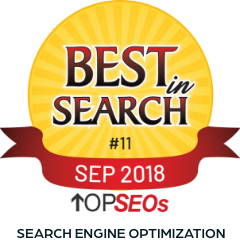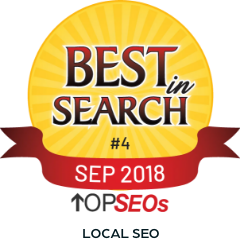In today’s competitive digital landscape, businesses strive to secure a prominent online presence, and search engine optimization (SEO) plays a pivotal role in achieving this. Within the realm of SEO, there is a growing emphasis on organic strategies that can deliver long-term and sustainable results. This article will explore the essential techniques and best practices to gain organic SEO results, providing businesses with a solid foundation for success.
Best Practices To Gain Organic SEO Results
1. Organic SEO
This refers to the process of optimizing a website’s visibility and traffic through unpaid, natural search engine results. It entails crafting a flawless user experience, creating high-quality content, building authoritative backlinks, and employing various optimization techniques. By adopting a holistic SEO approach, businesses can enhance their online visibility, attract more targeted traffic, and ultimately, improve conversion rates.
2. Keyword Research
To kick-start your SEO journey, it is crucial to conduct thorough keyword research. Keyword research helps identify the terms and phrases prospective customers use when searching for products or services online.
By understanding these search patterns, businesses can optimize their content accordingly, ensuring that their website appears prominently in search engine result pages (SERPs). Tools such as Google Keyword Planner and SEMrush can assist in identifying relevant keywords for your industry.
3. Engaging Content
Once you have identified your target keywords, it is essential to create informative and engaging content surrounding them. High-quality content is the cornerstone of organic SEO. By producing relevant, original, and well-structured content, businesses can establish themselves as industry authorities and enhance their credibility. Additionally, search engines value fresh content, so updating your website regularly with blog posts, articles, and guides can boost organic rankings.
4. Optimize Website
Optimizing the website’s technical aspects is equally important. This includes ensuring fast page loading times, improving mobile responsiveness, and implementing proper image optimization, among others. By adhering to these technical best practices, businesses can provide users with a seamless browsing experience, thereby improving their organic search rankings.
5. Authoritative Backlinks
Acquiring authoritative backlinks is another integral aspect. Backlinks are external hyperlinks originating from other reputable websites. Search engines perceive these backlinks as votes of confidence and credibility. Consequently, building a strong backlink profile is crucial for achieving organic SEO success. Guest blogging, influencer collaborations, and participating in industry forums are effective strategies for acquiring backlinks and boosting website authority.
6. Websites User Experience (UX)
Furthermore, improving the website’s user experience (UX) is paramount. This involves enhancing site navigation, optimizing web design, and ensuring seamless responsiveness across multiple devices. A positive user experience translates into longer on-site dwell times, reduced bounce rates, and increased conversions, leading to improved organic search rankings.
7. Performance Analytics
Monitoring and analyzing organic SEO performance is vital to ensure continued success. Utilizing tools like Google Analytics, businesses can track website traffic, user behavior, and engagement metrics. Analyzing these metrics enables businesses to identify areas for improvement, allowing them to tailor their organic SEO strategies accordingly.
Advantages:
Organic SEO (Search Engine Optimization) offers numerous advantages for businesses and websites that are looking to establish a strong online presence and attract valuable organic traffic. Here are some of the key advantages of organic SEO:
-
Long-Term Sustainability:
Organic SEO focuses on creating high-quality, relevant, and valuable content that resonates with your target audience. This approach leads to sustained visibility and rankings in search engine results over time. Unlike paid advertising, which stops when the budget is exhausted, organic SEO efforts continue to yield results even after initial optimization.
-
Cost-Effectiveness:
While organic SEO requires an investment of time, effort, and possibly resources, it offers a more cost-effective approach compared to paid advertising. Once you’ve achieved favorable rankings, the ongoing maintenance and optimization costs are generally lower than continually paying for advertisements.
-
Higher Click-Through Rates (CTR):
Research has shown that organic search results tend to receive higher click-through rates compared to paid ads. Users often perceive organic results as more trustworthy and relevant, leading to a greater likelihood of clicks and conversions.
-
Credibility and Trust:
Organic rankings are achieved by providing valuable and authoritative content that aligns with user search intent. This helps establish your website as a credible and trustworthy source within your industry, fostering a positive perception among users.
-
Better User Experience:
Organic SEO emphasizes improving the overall user experience of your website. Elements such as fast page load times, mobile responsiveness, intuitive navigation, and high-quality content contribute to a positive user experience, leading to longer visits, lower bounce rates, and improved engagement metrics.
-
Targeted Traffic:
Organic SEO targets users who are actively searching for information, products, or services related to your industry. This leads to more targeted and relevant traffic, increasing the likelihood of conversion and customer retention.
-
Higher Return on Investment (ROI):
The sustained benefits of organic SEO, including increased visibility, credibility, and targeted traffic, contribute to a higher return on investment over time. While the initial investment might take longer to manifest, the long-term gains can be substantial.
-
Adaptability to Algorithm Changes:
Organic SEO strategies that focus on quality content, user experience, and ethical practices are more resilient to search engine algorithm updates. Unlike some paid methods that may require immediate adjustments, organic SEO’s core principles remain relevant and adaptable.
-
Brand Building:
Consistent organic SEO efforts contribute to brand recognition and awareness. As your website gains prominence in search results, users become more familiar with your brand, which can lead to increased brand loyalty and word-of-mouth referrals.
-
Local Visibility:
Local businesses can particularly benefit from organic SEO by optimizing for local searches. This helps them connect with nearby customers and improve foot traffic to physical stores.
Disadvantages:
-
Time-Consuming:
Organic SEO is not a quick fix. It takes time to see significant results, as you need to build authority, earn backlinks, and create valuable content over an extended period.
-
Uncertain Results:
While organic SEO can yield long-term benefits, there’s no guarantee of specific rankings or outcomes. Search engine algorithms are complex and can change, affecting your rankings.
-
Intense Competition:
Many businesses are vying for the same top positions in search results. Competitive industries can make it challenging to achieve and maintain high rankings.
-
Technical Complexity:
It requires a good understanding of technical aspects such as website structure, on-page optimization, and backlink building. It may necessitate the assistance of SEO experts or professionals.
-
Constant Effort Required:
Achieving and maintaining organic rankings requires ongoing effort and monitoring. Regular updates, content creation, and optimization are necessary to stay relevant.
-
Delayed ROI:
As it takes time to produce significant results, the return on investment (ROI) may not be immediately apparent, making it less suitable for businesses seeking quick returns.
-
Algorithm Changes:
While organic SEO is adaptable, sudden algorithm changes can impact your rankings, requiring you to adjust your strategies accordingly.
Frequently Asked Questions
Q: How long does it take to see results?
A: The timeline for seeing results from organic SEO can vary widely based on factors such as competition, industry, and the quality of your efforts. In general, it can take several months to start seeing significant improvements in rankings and organic traffic. Patience and consistent effort are key.
Q: Can I do organic SEO myself, or should I hire a professional?
A: You can certainly implement basic SEO strategies on your own, such as optimizing your content and meta tags. However, more advanced technical aspects and strategies, such as backlink building and technical website optimization, may require the expertise of an experienced SEO professional.
Q: What is the role of content in organic SEO?
A: Content is a cornerstone of organic SEO. High-quality, relevant, and informative content helps establish your authority in your industry, attracts backlinks, and satisfies user search intent. Creating a content strategy that addresses the needs and questions of your target audience is crucial for SEO success.
Q: Is organic SEO better than paid advertising?
A: SEO and paid advertising serve different purposes. Organic SEO offers long-term, sustainable results and credibility, while paid advertising can provide quicker visibility and immediate traffic. Both strategies can complement each other to create a comprehensive online marketing approach.
Q: Does organic SEO work for local businesses?
A: Yes, organic SEO is essential for local businesses. Local SEO, a subset of organic SEO, focuses on optimizing your website for local searches. This includes creating and optimizing Google My Business listings, local citations, and getting reviews to improve local visibility.
Q: How do search engine algorithm updates affect organic SEO?
A: Search engine algorithms are updated regularly to provide better search results. While some updates may impact your rankings, following ethical and user-centric SEO practices can make your website more adaptable to these changes.
Q: Is organic SEO a one-time effort?
A: No, it requires ongoing effort. Search engine algorithms evolve, competition changes and user behavior shifts over time. Regular updates, content creation, and optimization are necessary to maintain and improve your organic rankings.
Conclusion
Harnessing the power of organic SEO is essential for businesses seeking long-term online success. By conducting thorough keyword research, creating valuable content, optimizing technical aspects, acquiring authoritative backlinks, improving user experience, and monitoring performance, businesses can secure prominent organic search rankings.
Affordable SEO is a continuous process that requires dedication and patience, but the rewards are immeasurable – increased visibility, qualified traffic, and higher conversion rates. Embrace organic SEO today, and watch your online presence flourish.
At seoTuners, we offer affordable website SEO services & SEO solutions because we understand that in a city like Los Angeles and Ventura, small and medium-sized businesses may not have vast marketing budgets at their disposal. Contact us today for a detailed analysis of your SEO website, and let us help your business grow.








